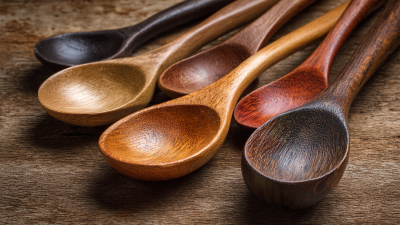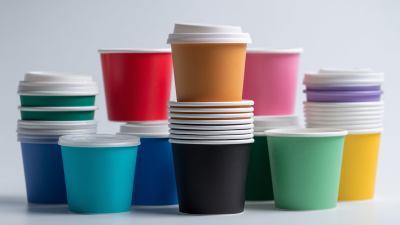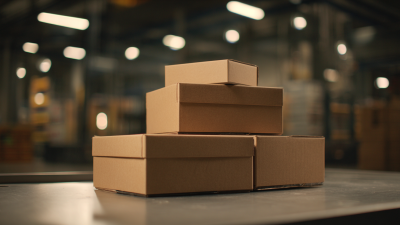In recent years, there has been a significant shift towards sustainable living, prompting consumers to reconsider their kitchen essentials. Among these staples, "Spoons Wood" has emerged as a popular choice due to its eco-friendly benefits. According to a report by the Global Data Research, the wooden kitchenware market is projected to grow by 5% annually, reflecting a rising consumer preference for sustainable materials. Wooden spoons, known for their durability and versatility, not only enhance the cooking experience but also reduce reliance on single-use plastics, which contribute heavily to environmental pollution. Additionally, the production of wooden spoons typically generates a smaller carbon footprint compared to their metal or plastic counterparts, making them an ideal choice for environmentally-conscious individuals. As we delve into the myriad advantages of incorporating wooden spoons into our kitchens, it becomes clear that these seemingly simple utensils play a vital role in supporting a more sustainable lifestyle.
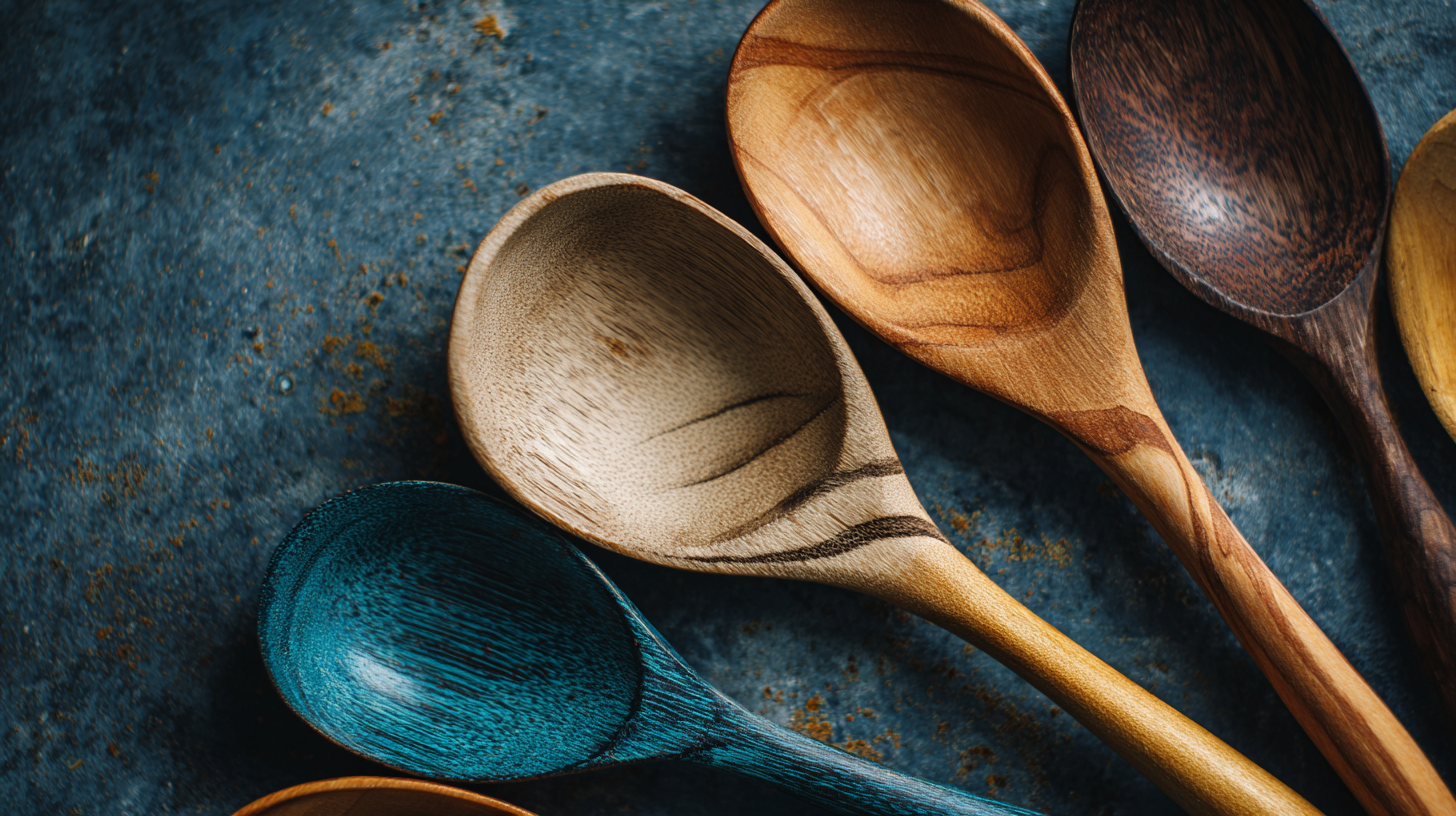
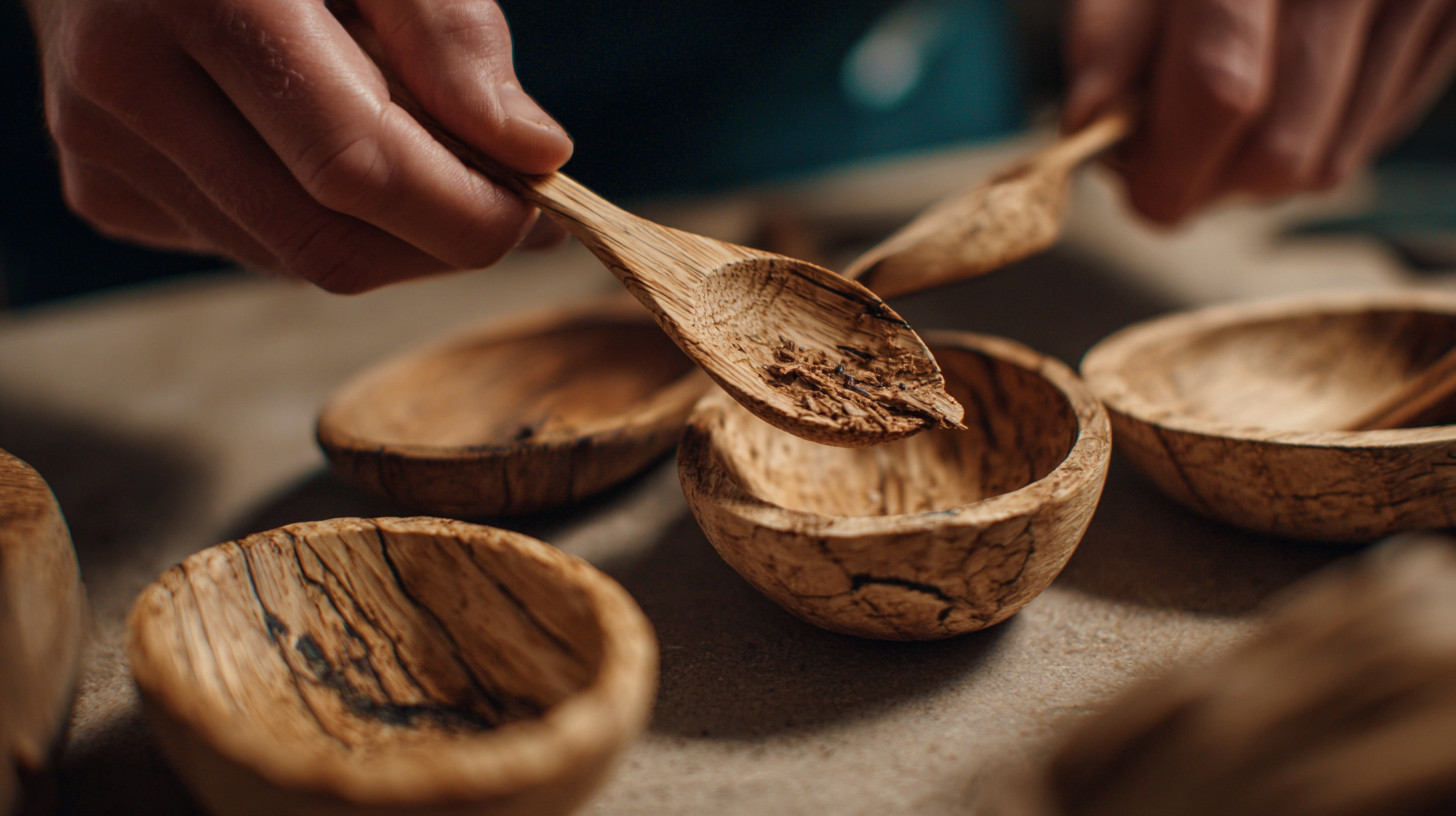 The use of wooden spoons in the kitchen presents a number of eco-friendly benefits, making them a sustainable choice for culinary enthusiasts. One of the most significant environmental impacts of wooden spoons lies in their biodegradability. Unlike plastic utensils, which can take hundreds of years to decompose, wooden spoons break down naturally, reducing landfill waste. This characteristic is crucial in an age where plastic pollution is a growing concern, emphasizing the importance of opting for materials that are earth-friendly and require less energy to produce.
The use of wooden spoons in the kitchen presents a number of eco-friendly benefits, making them a sustainable choice for culinary enthusiasts. One of the most significant environmental impacts of wooden spoons lies in their biodegradability. Unlike plastic utensils, which can take hundreds of years to decompose, wooden spoons break down naturally, reducing landfill waste. This characteristic is crucial in an age where plastic pollution is a growing concern, emphasizing the importance of opting for materials that are earth-friendly and require less energy to produce.
Furthermore, wooden spoons are often sourced from sustainable forestry practices, ensuring that the wood is harvested in an environmentally responsible manner. This means that for every tree cut down, others are planted, maintaining the ecological balance. Additionally, wood is a renewable resource, unlike fossil fuels used in the production of plastic. By choosing wooden spoons, consumers support sustainable resource management and contribute to the protection of forests. Therefore, switching to wooden cooking utensils not only enhances the cooking experience but also fosters a healthier planet for future generations.
When selecting wooden spoons for sustainable kitchen use, choosing the right type of wood is crucial to ensure both eco-friendliness and durability. Hardwoods such as maple, beech, and cherry are often favored for their resilience and longevity. According to the U.S. Forest Service, well-managed hardwood forests provide multiple benefits such as carbon sequestration and biodiversity maintenance. For example, maple trees can sequester an average of 2.65 tons of carbon dioxide per year, making them an excellent choice for eco-conscious consumers.
Another important factor is the sourcing of the wood. Sustainable forestry practices, certified by organizations like the Forest Stewardship Council (FSC), ensure that the trees are harvested responsibly, preserving habitats and maintaining ecosystem balance. This certification can significantly reduce the environmental impact of production. Data from the World Wildlife Fund indicates that approximately 80% of deforestation is driven by unsustainable logging practices. Thus, opting for wooden spoons made from FSC-certified wood not only supports sustainable forestry but also minimizes the carbon footprint associated with kitchenware production.
In conclusion, when choosing wooden spoons, consumers should prioritize hardwoods sourced from sustainable forests. This conscious choice not only enhances the durability of kitchen tools but also contributes to a healthier planet.
Wooden spoons are not only a sustainable alternative to plastic utensils but also a safer choice for your kitchen. Recent studies have raised concerns about toxic substances in black plastic utensils, many of which are made from recycled electronic waste. Choosing wooden implements avoids these potential hazards and contributes to a healthier environment. According to industry reports, wooden kitchen tools are biodegradable, which greatly reduces landfill waste compared to plastic options that persist for centuries.
To ensure the longevity and eco-friendliness of your wooden utensils, it’s essential to care for them properly. Here are a few tips:
With these practices, your wooden spoons can last for many years, making them a truly sustainable kitchen essential.
When it comes to kitchen utensils, the debate between wooden spoons and plastic alternatives highlights critical sustainability factors. According to a report by the Environmental Protection Agency (EPA), Americans generated approximately 292.4 million tons of trash in 2018, with plastics accounting for nearly 27 million tons. This alarming statistic underscores the pressing need to consider more sustainable options, such as wooden spoons, which are biodegradable and often sourced from eco-friendly materials.
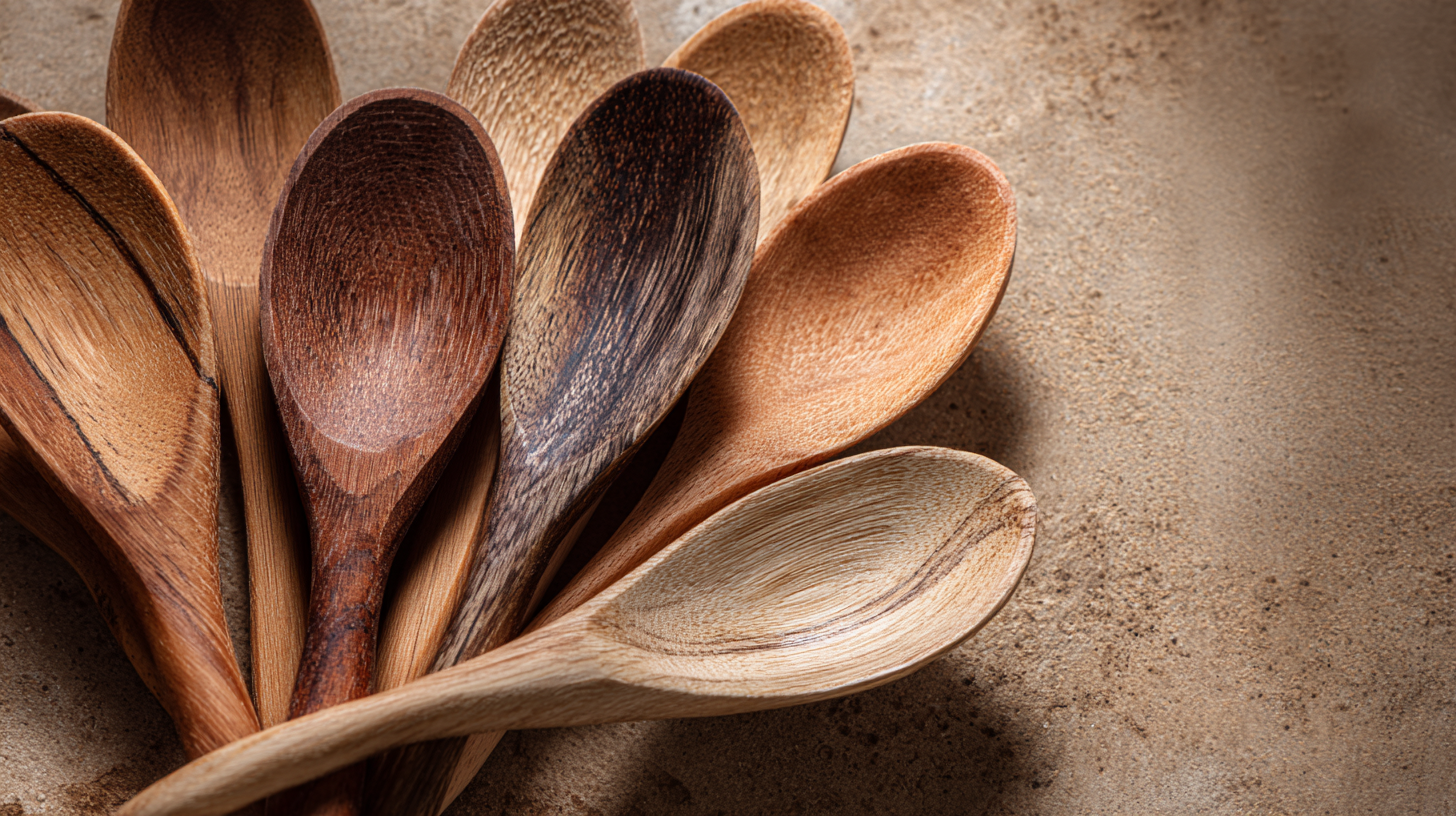
Comparatively, while plastic spoons may seem convenient, they pose significant environmental threats. Studies from the Ellen MacArthur Foundation indicate that if current production trends continue, there could be more plastic than fish in the oceans by 2050. In contrast, wooden spoons, typically crafted from sustainably harvested wood, not only minimize landfill contributions but also have a smaller carbon footprint in their manufacturing process.
Moreover, the durability of wooden utensils means they can last for years with proper care, which further reduces the overall environmental impact. As consumers increasingly prioritize sustainability in their kitchen choices, wooden spoons emerge as a crucial staple for eco-conscious living.
Wooden spoons are not only a charming addition to any kitchen but also serve as a versatile tool that can enhance your cooking experience. Their natural material is eco-friendly, making them a sustainable choice that reduces reliance on plastic utensils. To incorporate wooden spoons into your cooking routine, consider using them for stir-frying vegetables or mixing together ingredients in large bowls. Their sturdy construction allows for a strong grip, ensuring that you can blend ingredients thoroughly without worrying about wear and tear.
In addition to their practical use, wooden spoons offer a creative edge to cooking presentations. You can personalize them with paint or engravings, turning them into unique kitchen décor or gifts for friends and family. Pairing them with colorful sauce dispensers can make a visually appealing setup on your dining table. Wooden spoons can also be left in pots while cooking to add a rustic charm to your kitchen. By blending functionality with creativity, wooden spoons can truly transform your culinary routine into a delightful experience.
| Benefit | Description | Creative Uses |
|---|---|---|
| Eco-Friendly | Made from renewable resources, reducing plastic waste. | Use for stirring sauces, mixing ingredients, or serving salads. |
| Durability | Long-lasting and less prone to scratching than metal spoons. | Utilize in baking to gently fold in ingredients without damage. |
| Non-Toxic | Safe for food preparation, free from harmful chemicals. | Ideal for baby food preparation and serving. |
| Aesthetic Appeal | Natural wood grain enhances kitchen decor. | Display as part of kitchen decor or use in charcuterie layouts. |
